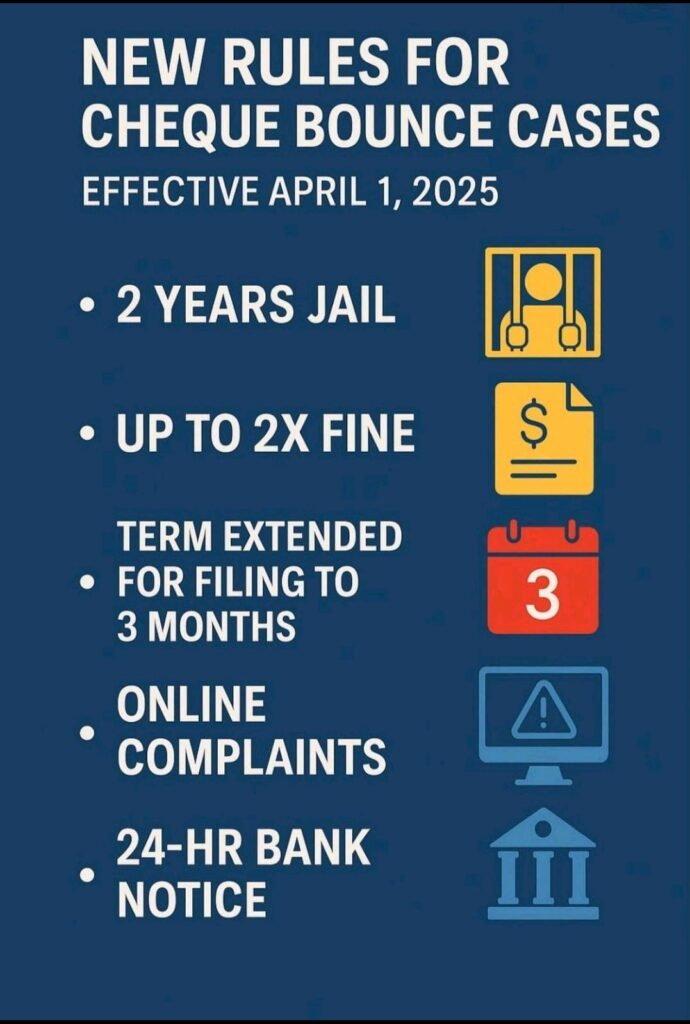
As of April 1, 2025, significant amendments to the Negotiable Instruments Act, 1881 have been implemented in India, aiming to enhance the efficacy of legal proceedings related to cheque dishonour cases and to reinforce financial discipline. These changes are pivotal for both issuers and recipients of cheques, ensuring a more streamlined and stringent approach to handling such matters.
🔍 Key Amendments Effective April 1, 2025
1. Extended Timeframe for Filing Complaints
Previously, under Section 138 of the Negotiable Instruments Act, a complaint regarding a bounced cheque had to be filed within one month from the date the cause of action arose. The amendment has extended this period to three months, providing complainants with a more reasonable timeframe to initiate legal proceedings .
2. Enhanced Penalties for Offenders
The revised provisions stipulate stricter penalties for those found guilty of issuing cheques that are dishonoured due to insufficient funds:
- Imprisonment: Up to 2 years, increased from the previous term of 1 year.
- Fine: Up to twice the amount of the cheque.
These enhanced penalties aim to deter individuals from issuing cheques without ensuring adequate funds in their accounts .ANP Tax Corp
3. Mandatory Electronic Clearing Service (ECS) Compliance
To promote transparency and reduce fraud, the government has mandated the use of Electronic Clearing Service (ECS) for certain transactions. Non-compliance may result in the cheque being considered invalid .
4. Digital Filing of Complaints
Complainants can now file cases related to cheque bounce online, streamlining the process and reducing the need for physical court visits .
⚖️ Legal Provisions and Case Law
Section 138 – Offence of Dishonour of Cheque
This section criminalizes the act of issuing a cheque that is dishonoured due to insufficient funds or if it exceeds the amount arranged with the bank. The drawer is deemed to have committed an offence and is subject to penalties as mentioned above.
Section 142 – Cognizance of Offences
This section outlines the procedure for taking cognizance of offences under Section 138, including the timeframes for filing complaints and the courts’ jurisdiction.
Relevant Case Law
- Dashrath Rupsingh Rathore v. State of Maharashtra: The Supreme Court held that the place of dishonour of the cheque determines the jurisdiction for filing a complaint under Section 138.
📝 Conclusion
The amendments effective from April 1, 2025, signify the government’s commitment to strengthening financial discipline and ensuring the credibility of cheque transactions. By imposing stricter penalties and facilitating easier legal recourse, these changes aim to deter the misuse of cheques and protect the interests of genuine stakeholders.
Disclaimer: This article is for informational purposes only and does not constitute legal advice. For specific legal concerns, please consult a qualified attorney.